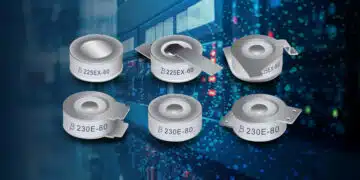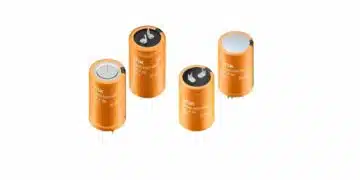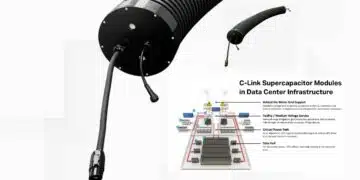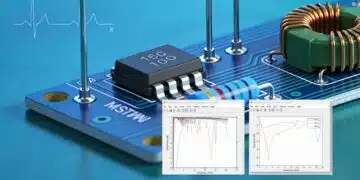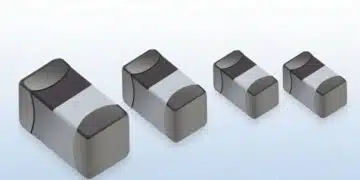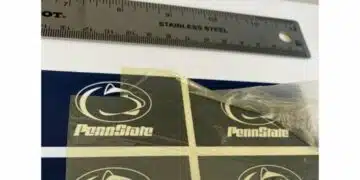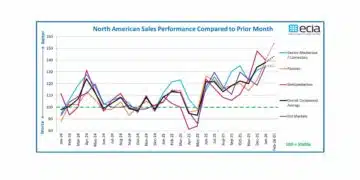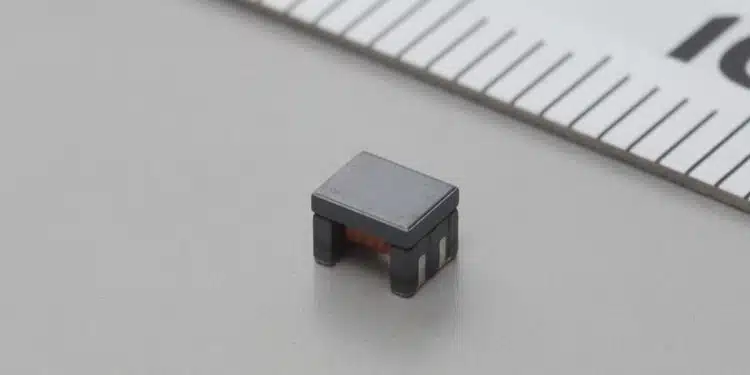Murata Manufacturing Co., has added a new DLW32SH510XF2 lineup that meets DCMR*2 Class 3*3 requirements to the automotive use chip common mode choke coil DLW32SH_XF Series for next-generation CAN FD*1 in-vehicle networking applications. Mass production of this product began in April 2023.
In the automotive industry in recent years, the aim to make driving safer and easier has been driving the rapid development in the sophistication of vehicle control technology through the implementation of technologies such as ADAS (Advanced Driver Assistance Systems).
This trend has led to a rise in the demand for faster in-vehicle networks and an increased switch from Classical CAN*4, which had a maximum data rate of 1 Mbps (bits per second), to the faster CAN FD.
In response to this demand, Murata has expanded the lineup of CAN FD-compatible chip common mode choke coils to include new 51µH products with existing 100µH products. This product is effective in reducing noise from CAN or CAN-FD signal lines in in-vehicle networks and satisfies DCMR Class 3 requirements for common mode choke coils used in CAN FD networks as specified in IEC62228-3*5
Key Specifications
| Product name | DLW32SH510XF2 |
|---|---|
| Size | 3.2mm x 2.5mm |
| Common mode inductance at 0.1 MHz | 51µH |
| Rated current | 125 mA |
| Operating temperature range | -40 to 125°C |
| Others | AEC-Q200 compliant |
- *1CAN FD (CAN with Flexible Data-Rate): Network protocol used in next-generation vehicles. This in-vehicle communications protocol uses higher speed (1 Mbps or higher) communication to transmit larger volumes of data (up to 64 bytes per frame) than what has been possible until now.
- *2DCMR (Differential to Common Mode Rejection): The amount of mode conversion from differential components to common components.
- *3DCMR Class 3: The DCMR characteristics required for common mode choke coils used in CAN are classified into three classes. DCMR Class 3 indicates DCMR characteristics that follow the most rigorous standards of the three categories.
- *4Classical CAN (Controller Area Network): An in-vehicle communication standard that allows for the transmission and reception of up to 8 bytes per frame at a maximum communication speed of 1 Mbps or lower.
- *5IEC62228-3: One of the standards for electrical and electronic-related technology defined by the IEC (International Electrotechnical Commission).



